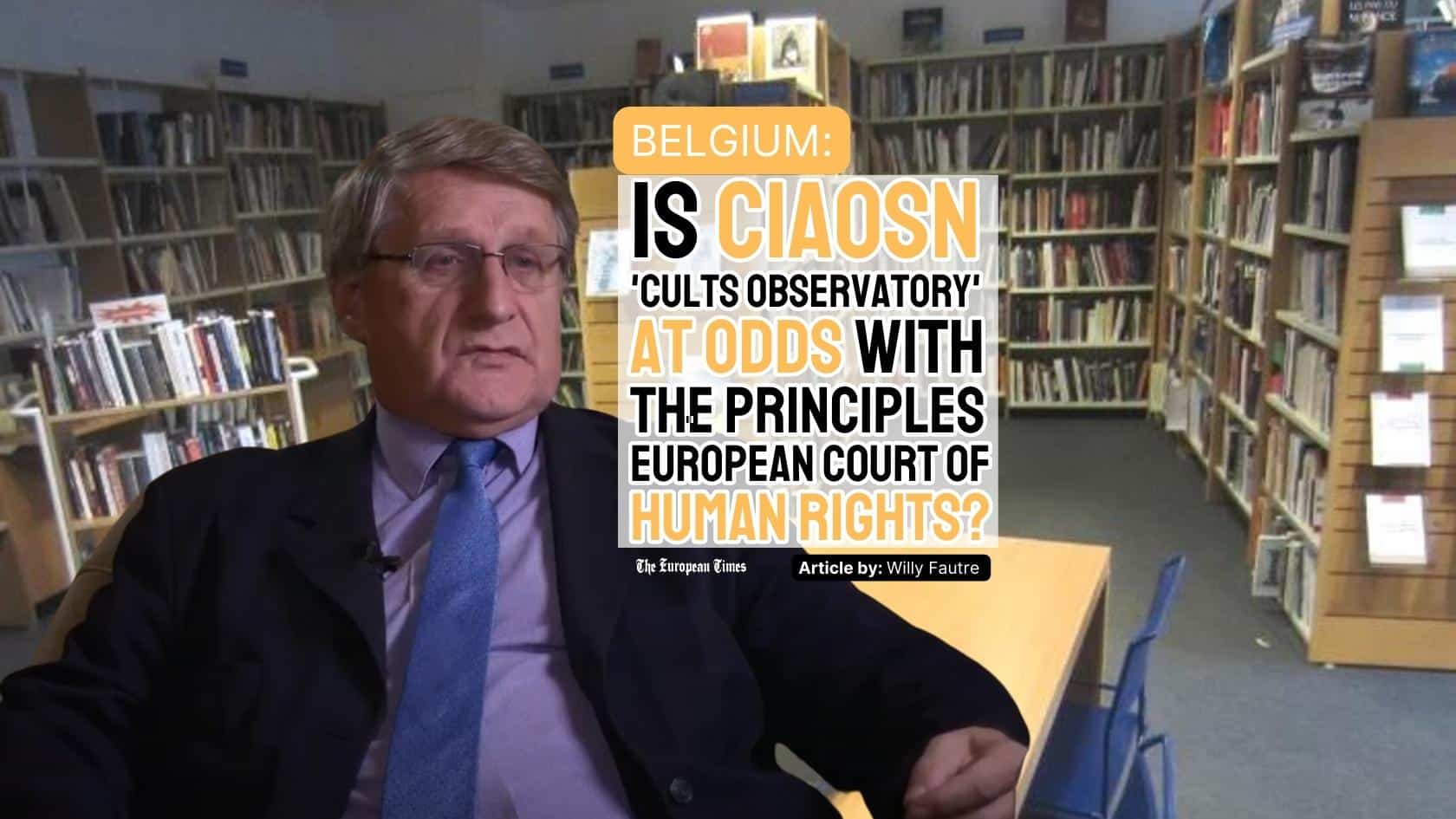HRWF (10.07.2023) – On June 26, the Federal Observatory on Cults (CIAOSN/ IACSSO), officially known as the “Center for Information and Advice on Harmful Cultic Organizations” and created by the law of June 2, 1998 (amended by the law of April 12, 2004), published a number of “Recommendations concerning help for victims of cultic influence“.
In this document, the Observatory points out that its aim is to “combat the illegal practices of cults”.
Illegal practices of cults
Firstly, it should be emphasized that the concept of “cult” (secte in French) is not part of international law. Any religious, spiritual, philosophical, theistic or non-theistic group, or any of its members, can lodge a complaint for alleged violation of freedom of religion or belief. Many have done so successfully in European countries, including at the European Court of Human Rights on the basis of Article 9 of the European Convention:
“Everyone has the right to freedom of thought, conscience and religion; this right includes freedom to change his religion or belief and freedom, either alone or in community with others and in public or private, to manifest his religion or belief, in worship, teaching practice and observance.”
Secondly, cults are legally impossible to identify. The publication of a list of 189 possibly suspect groups attached to the Belgian parliamentary report on cults in 1998 was widely criticized at the time for its stigmatizing instrumentalization, particularly but not only by the media. It was finally recognized that it had no legal value and could not be used as a legal document in courts.
Thirdly, the European Court of Human Rights recently handed down a judgment in the case of Tonchev and Others v. Bulgaria of December 13, 2022 (Nr 56862/15), opposing Evangelicals to the Bulgarian state over the distribution by a public authority of a brochure warning against dangerous cults, including their religion. In particular, the Court declared:
53 (…) the Court considers that the terms used in the circular letter and information note of April 9, 2008 – which described certain religious currents, including Evangelicalism, to which the applicant associations belong, as “dangerous religious cults” which “contravene Bulgarian legislation, citizens’ rights and public order” and whose meetings expose their participants to “psychic disorders” (paragraph 5 above) – may indeed be perceived as pejorative and hostile. (…)
In these circumstances, and even if the measures complained about have not directly restricted the right of the applicant pastors or their co-religionists to manifest their religion through worship and practice, the Court considers, in the light of its above-mentioned case-law (paragraph 52 above), that these measures may have had negative repercussions on the exercise by the members of the churches in question of their freedom of religion.
Judgment of European Court of Human Rightsin the case of Tonchev and Others v. Bulgaria of December 13, 2022 (Nr 56862/15)
Paragraph 52 of the judgment lists other cases such as “Leela Förderkreis e.V. and Others v. Germany” and “Centre of Societies for Krishna Consciousness In Russia and Frolov v. Russia“, in which the use of the derogatory term “cult” was disavowed by the European Court and now serves as case law. See also a commentary on the European Court’s judgment by Massimo Introvigne in Bitter Winter under the title “European Court of Human Rights: Governments should not call minority religions ‘cults’.”
The official mission of the Belgian Cult Observatory is therefore intrinsically and very clearly at odds with the European Court in stigmatizing so-called “harmful cultic organizations,” an obviously derogatory formulation.
Using derogatory words targeting homosexuals, Africans or any other human groups is forbidden by law. It should not be different with religious or belief groups.
Last but not least: By whom, how and according to what criteria of “harmfulness” could “harmful cultic organizations” be legally identified?
The Observatory’s mandate is also intrinsically contradictory.
On the one hand, its mission is to combat so-called “illegal practices” of cults, which must therefore be qualified as such by a final judgment and not before.
On the other hand, its mission is also to “combat harmful cultic organizations”, which can be done without any judicial decision concerning the groups to be targeted. The neutrality of the state is clearly at stake here, especially as many “cults” or their members have won quite a number of cases in Strasbourg against European states on the basis of Article 9 of the European Convention protecting freedom of religion or belief.
The mission of the Belgian Cult Observatory vulnerable to a complaint in Strasbourg
These aspects of the Observatory’s mission may not withstand a complaint to the European Court.
Indeed, we should not forget the surprising collateral effects of a recent “ordinary” complaint concerning discriminatory taxation lodged in Strasbourg by a local congregation of the Jehovah’s Witness movement, treated as a cult by the Belgian Cult Observatory and the Belgian State authorities. The European Court then roundly criticized the total lack of any legal basis for state recognition of religious and philosophical groups, which was not part of the complaint, and called on Belgium to comply with international law.
On 5 April 2022, in the case Congregation of Jehovah’s Witnesses of Anderlecht and Others v. Belgium (application no. 20165/20) about a discriminatory taxation issue towards Jehovah’s Witnesses, the European Court of Human Rights held, unanimously, that there had been:
“a violation of Article 14 (prohibition of discrimination) read in conjunction with Article 9 (freedom of thought, conscience and religion) of the European Convention on Human Rights.”
It also held, unanimously, that Belgium was to pay the applicant association 5,000 euros (EUR) in respect of costs and expenses.
Belgium has now put in place a working group to revise a posteriori the state recognition of religious and philosophical organizations. Belgium should better anticipate another issue concerning its cult policy and follow the example of Switzerland with its Centre for Information on Beliefs (CIC).














